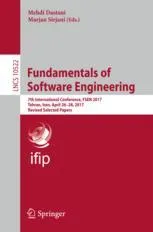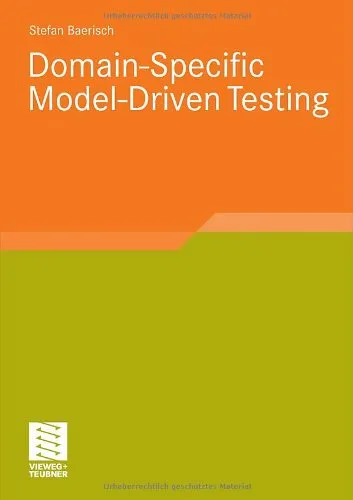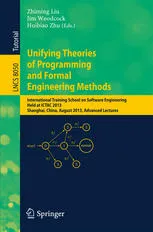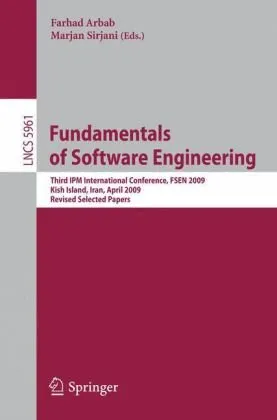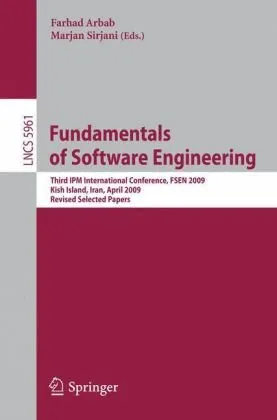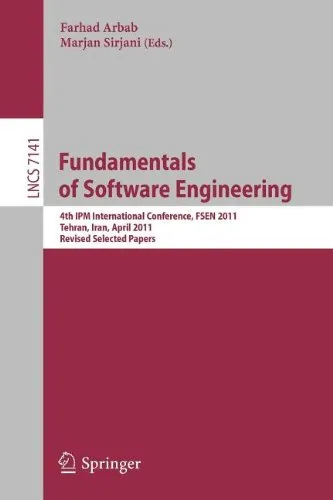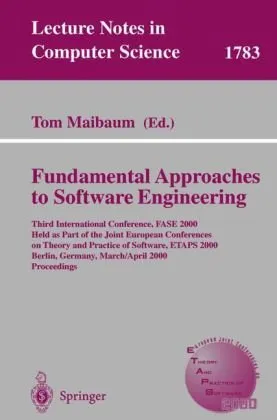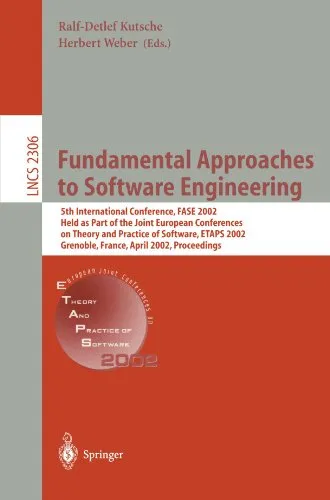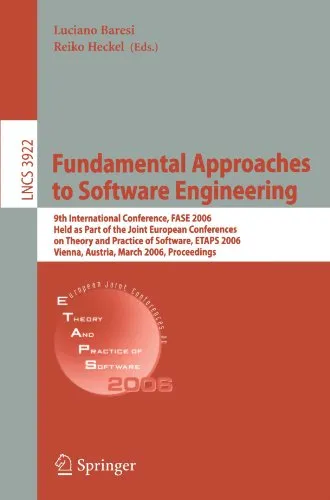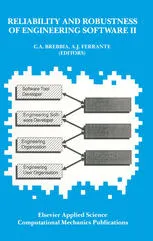Fundamentals of Software Engineering: 7th International Conference, FSEN 2017, Tehran, Iran, April 26–28, 2017, Revised Selected Papers
3.8
Reviews from our users

You Can Ask your questions from this book's AI after Login
Each download or ask from book AI costs 2 points. To earn more free points, please visit the Points Guide Page and complete some valuable actions.Related Refrences:
Introduction
Welcome to Fundamentals of Software Engineering: 7th International Conference, FSEN 2017, Tehran, Iran, April 26–28, 2017, Revised Selected Papers, a comprehensive volume that brings together the latest insights, methodologies, and innovations in software engineering. This book compiles selected papers from the 7th International Conference on Fundamentals of Software Engineering (FSEN), an event held to foster discussion and collaboration among researchers, academics, and practitioners in the field. Spanning across cutting-edge topics such as formal methods, software architecture, and quality assurance, this volume serves as an essential resource for anyone aiming to deepen their knowledge of software engineering as both a discipline and an applied science.
The FSEN conference series has long been a prestigious platform for experts to present their findings and to explore the role of software engineering in solving real-world challenges. FSEN 2017 continued this tradition by emphasizing diverse, forward-looking topics, as evidenced by the contributions included in this collection. From addressing foundational theories to tackling tangible implementation challenges, the book captures how software engineering is evolving in response to the demands of modern computing.
Summary of the Book
This book collects 22 meticulously peer-reviewed papers selected from a total of 66 submissions, ensuring that only high-quality contributions are presented. The topics revolve around recent advancements in both the theoretical and applied aspects of software engineering.
The book is structured to address fundamental areas of interest, including but not limited to:
- Formal methods and verification techniques for ensuring software reliability.
- Advances in model-driven development and system architecture design.
- Quality assurance methodologies addressing testing and debugging.
- Innovative approaches to software performance and scalability.
- Applications of software engineering principles in industrial settings.
Many of these papers integrate formal techniques with software development, showcasing how mathematical foundations can drive tangible improvements in software robustness and correctness. Case studies further highlight how the presented techniques and methodologies can be applied for designing efficient and error-free software systems, reflecting the real-world impact of research in this domain.
Key Takeaways
This book offers a wealth of knowledge for software engineers, students, and researchers alike. Here are some of the key insights:
- Bridging Theory and Practice: The selected papers demonstrate how theoretical approaches, such as formal verification and automata theory, can successfully inform practical software engineering solutions.
- Emerging Trends: Readers are introduced to cutting-edge topics in software engineering, ensuring they remain current with industry advancements.
- Collaborative Research: Contributions from diverse authors and regions showcase the global nature of software engineering research and its collaborative potential.
- Improved Software Quality: The methodologies and tools presented in the book emphasize creating reliable, maintainable, and scalable software systems.
- Interdisciplinary Insights: Several contributions investigate interdisciplinary applications, such as combining software engineering with artificial intelligence or cybersecurity.
By reading this book, you will gain the knowledge and tools necessary to address some of the most pressing challenges in software engineering today.
Famous Quotes from the Book
Here are some notable excerpts from the papers included in this volume:
"Formal verification is not merely a theoretical exercise; it is a necessary foundation for achieving ultimate software reliability."
"The intersection of software architecture and evolutionary systems offers an untapped potential for adaptive and resilient software design."
"Quality assurance must evolve alongside the systems it evaluates—continuous integration and automated testing are no longer optional."
Why This Book Matters
In a rapidly evolving digital landscape, software engineering stands as one of the most essential disciplines underpinning modern society. From developing reliable financial systems to enabling cutting-edge AI technologies, software engineering is critical to the success of countless industries.
This book makes significant contributions to the field by providing a curated collection of peer-reviewed papers addressing both foundational and emerging concerns. Each paper not only advances the theoretical understanding of software engineering principles but also makes a conscious effort to highlight their practical applicability. This dual emphasis ensures that the book is accessible and beneficial for academics, students, and practitioners alike.
Furthermore, the work encapsulated in this volume symbolizes the collective efforts of a thriving global research community. By reading this book, you join an academic dialogue that pushes the boundaries of what software engineering can accomplish. Whether you're seeking to refine your knowledge or explore potential research avenues, Fundamentals of Software Engineering offers you a gateway to the forefront of the discipline.
Free Direct Download
You Can Download this book after Login
Accessing books through legal platforms and public libraries not only supports the rights of authors and publishers but also contributes to the sustainability of reading culture. Before downloading, please take a moment to consider these options.
Find this book on other platforms:
WorldCat helps you find books in libraries worldwide.
See ratings, reviews, and discussions on Goodreads.
Find and buy rare or used books on AbeBooks.
1139
بازدید3.8
امتیاز0
نظر98%
رضایتReviews:
3.8
Based on 0 users review
Questions & Answers
Ask questions about this book or help others by answering
No questions yet. Be the first to ask!
